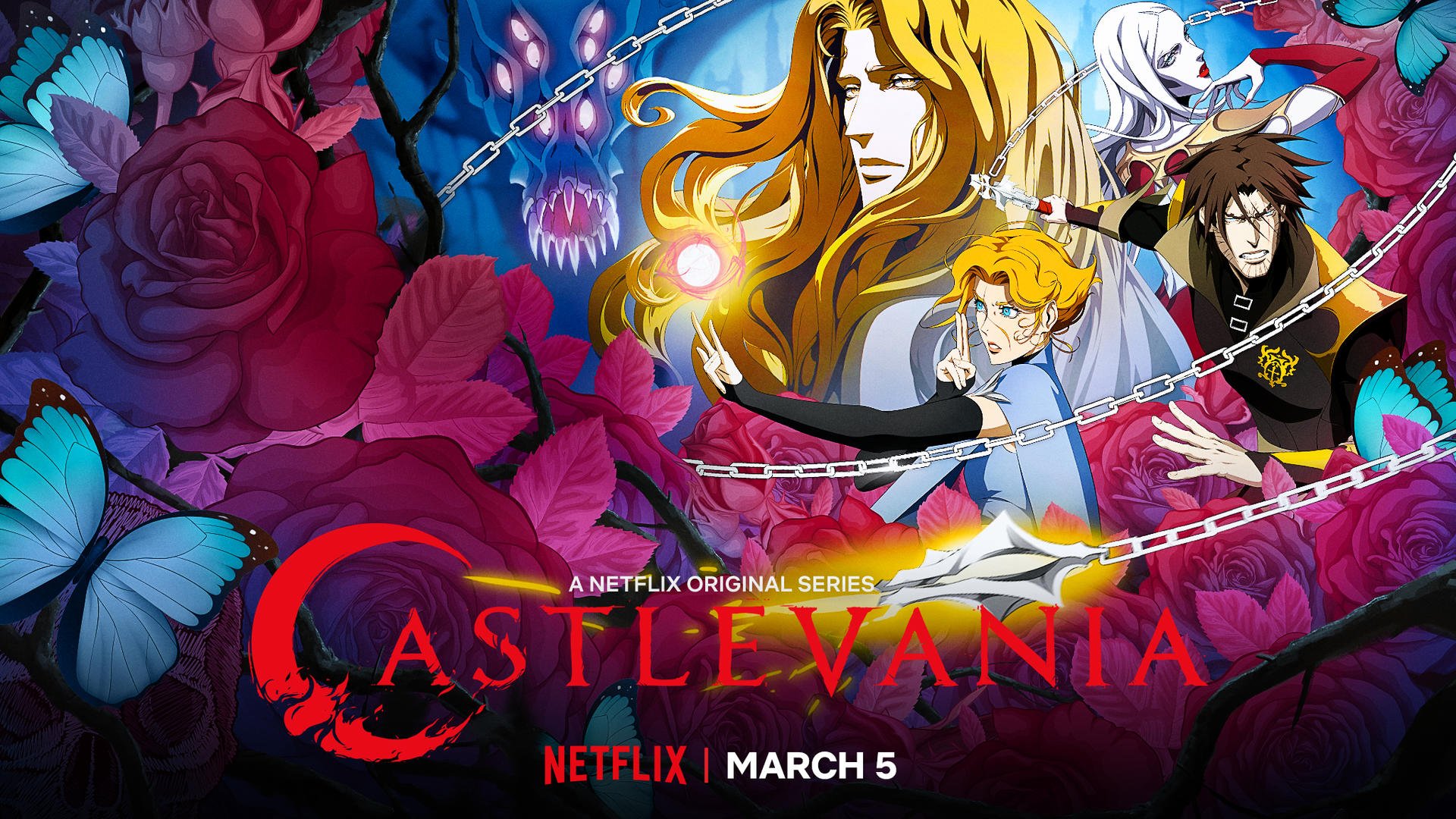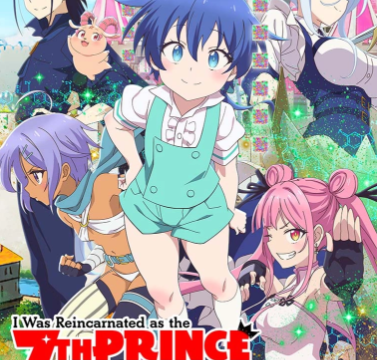Season Review: Castlevania Season Three
Coming off a surprisingly good second season (which really just felt like the back half of the first season), the animated adaptation of Castlevania returns for a third outing on Netflix. While the game series it’s based on continues to lie dormant in its coffin back at Konami (outside of some rereleases and mobile games), it seems the franchise has had new life necromancy’d into it with this fresh take written by Warren Ellis, which balanced an accessible yet visceral tale of hope, pain, recovery, legacy, and finding connection, all of which displayed in the evolution and decay of antagonist of the first two seasons, Count Vlad Dracula Tepes. After bringing countless viewers, whether they were familiar with the source material or not, under its thrall, the series left its fans bloodthirsty for how it would be followed up after Dracula’s climactic defeat. After over a year of waiting (and another odd release right before spring), the series is back with its first proper length ten episode season.
SPOILERS AHEAD!
About a month or two since Trevor Belmont, Sypha Belnades, and Dracula’s own son Alucard vanquished the legendary vampire and grounded his moving castle on top of the old Belmont basement, the group has gone their separate ways. Alucard ends up taking up residence in the castle and training some hopeful vampire hunters while Trevor and Sypha have taken to travelling the countryside as a monster hunting romantic duo, ending up in the town of Lindenfeld where a religious conspiracy begins to unfold, aided by the authoritative Judge (played by Jason Issacs) and the enigmatic and eccentric Saint Germain (Bill Nighy). What they uncover proves that Dracula’s presence still proves to be a curse that is still present on the land. Meanwhile, former human underlings Hector and Isaac also find themselves separated after last season’s fateful battle, with Hector under the control of Carmilla and her three co-rulers who mean to use his Forgemaster abilities to gain the control that Dracula couldn’t, while Isaac cuts across the world raising his own army in addition to seeing both the best and worst of human nature.
One of the things that immediately caught my attention about this season in comparison to the previous ones is division of focus this time around. Where Season 1 (short as it was) focused mainly on Trevor gathering allies and Season 2 added extra focus to the breaking down of Dracula’s command and mental state, both plots plainly moved towards the final defeat of Dracula at the end of that season. When all’s said and done, Season 3 has four distinct plots (Alucard’s, Trevor/Sypha’s, Hector’s, and Isaac’s) across ten episodes with none of them seeming to have that guiding point to tie them together, at least in terms of connecting events. The Belnades & Belmont team, who seem the ostensible “main” storyline, never meet up with Alucard and his burgeoning hunters-in-training (not that THAT would end any better than it did), nor overlap with Isaac in his travels, nor encounter any of Carmilla’s gathering forces to get a look at the threat that is to come. It’s not exactly necessary, as they all end up being more or less solid tales on their own, but after the clear trajectory of the first two seasons, it did leave me with a sense of anti-climax once the last ending credits played.
There is ONE notable way that each of these plots connect, and that’s thematically. Specifically on the theme of characters lacking and looking for a genuine connection and either finding it, losing, or failing to find it at all. Alucard’s is obvious as he begins the season dreadfully lonely in his new home, even making dolls of his only friends to keep him company Pinkie Pie style, so it’s no wonder he is eager to open up to hopeful slayers Sumi and Taka when they arrive at his doorstep for instruction and even more brutally tragic when they turn on him at the last second, confirming that he is as much his father’s son as he is his mother’s. Isaac’s journeys find him ping ponging between the warmth of benevolence and sting of rejection, as with every new friend he makes, he also gets a cold reminder that humans are capable of just as much injustice as they are kindness. Hector isn’t off much better, being slowly groomed by Carmilla’s “diplomat” Lenore into being their slave to help build their armies, ending entwined in a connection he cannot escape from. And lastly, Trevor and Sypha’s plot may be mostly combative, but sees them face enemies that wish to find a holy connection in the depths of hell, along with lonely allies like St Germain in addition to building their own bonds as lovers.
Yet even with this theme being persistent throughout the season, it does make me wonder if it was actually necessary to pack it with this much going on in just ten episodes. Things do look to be building up to the fateful reunion between Hector and Isaac as Carmilla and her faction of all female vampires look to fill the power vacuum Dracula left with Isaac likely looking to finish Dracula’s human extermination plan, but did we need to give them both time if we were going to end up with such little overall progression across the board? Trevor and Sypha’s adventure in Lindenfeld seems the most necessary to keep as it feels the most complete as a season arc and looks to loosely adapt the next game in the series, but then Alucard’s honestly comes up feeling pretty disposable by the end. Might it not have been better to leave him out of the story until the next major battle so as to give him both some time to rest AND make his appearances feel more valuable and significant? I might even save Isaac’s plot for next season make the anticipation for checking in with him stronger.
I do get the sense that this season is meant to be just a breather and a stepping stone to greater things and I highly doubt that Netflix will pull the plug on the show prematurely (even with their recent notorious reputation with animation), but I also can only judge the finished product in front of me and not whatever perceived greater conclusion we may see some years down the road. And as this season itself stands on its own, it feels like a (probably inevitable) downgrade from its predecessor. That’s not to say it doesn’t make good use of the characters it wishes to use, but the time and attention is spread far too thin to feel like anyone gets a fair shake, something I hope will be at least less noticeable next season when I expect more plots will start to come together. In short, Castlevania is still more than worth your time, but still stands in the shadow of its previous successes.
























"There are also other characters that come and go (also owned by the Warner Bros. Discovery conglomerate media company)."
Huh. Is that just referring to other characters from the show itself, or is this implying that the new season is going to have cameos from other WBD IPs